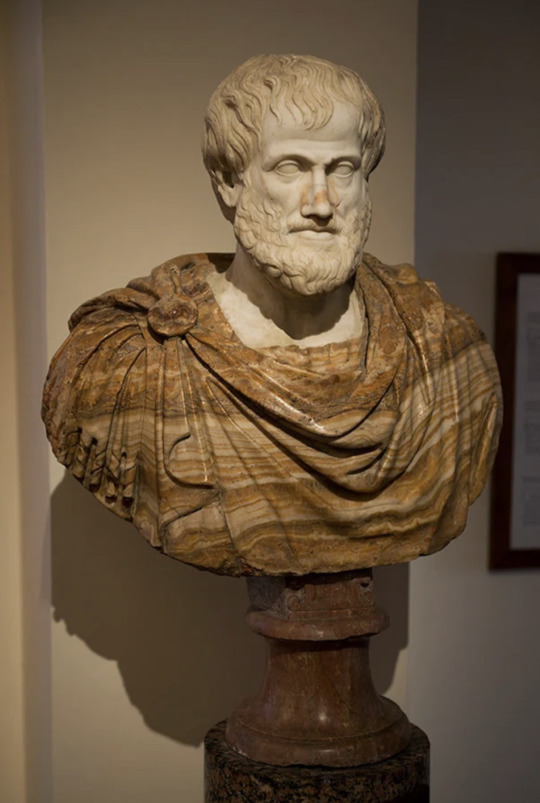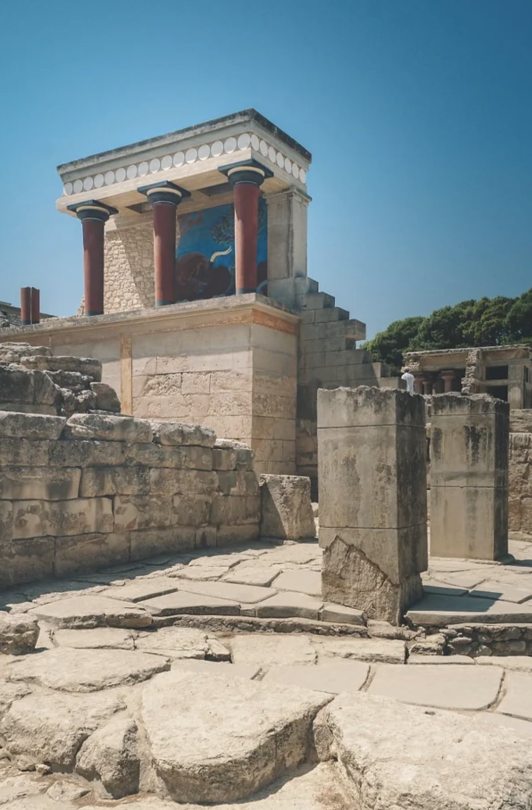Text

Free time fear
Pleasant activities or vacation time can be felt as a source of discomfort for certain people. This is the emerging phenomenon of leisure phobia/ociophobia.The untolerable anxiety of not being busy is closely connected to the fact that modern people are highly addictive to a fast pace of life and the pursuit of perfection. A busy schedule gives often an illusion of fulfilment, preventing us from dealing with serious concerns that we want to avoid and leading thus to the ignorance of a significant emptiness in which we have buried ourselves.
Considering leisure time as a waste of time is a trap. Actually even moments of daydreaming or meditation time are absolutely necessary for our mental and emotional health , as long as these are moments of clarity for our minds. Noteworthy is the fact that the word 'school'derives from the ancient Greek word σχολή meaning 'free time' used for and cultural activities (art,theatre,philosophical discussions,symposia etc). and sports. The etymological root of the word school means a ‘’holding back, a keeping clear’’. So the essential element of clarity traces back to the root of the word that ancient Greeks and Romans were using for transferring the meaning of free time.
Giving space to our minds and soul makes us significantly more productive and provides us with a rich sense of contentment. Free time activities reflect our need for emotional relief, necessary for our mental wellbeing. Relaxing and doing nothing as well as recreational activities are equally necessary for living a healthy and fulfilled life.
Seeking perfection is also an insidious enemy of enjoying our free time. Converting even our travels to a pursuit of vein excelellence triggers a meaningless anxiety. The stressful pursuit of photographing the perfect sunset doesn’t seem a wise priority. So next time we witness a beautiful sunset or landscape seems better to absorb the moment with every single sense and fullfil our mind with this picture and our soul with this feeling instead of pursuing the external validation of the digital world.
Perhaps the key to finding a balance and avoid the phobia of leisure time is to start by slowing down the pace of our daily routine . This way we get used to a more normal pace that allows us to enjoy moment of calmness and amusement. Moreover, by slowing down we can achieve self-refection that is necessary even for avoiding the meaningless pursuit of perfection.
0 notes
Text

“Knowing yourself is the beginning of all wisdom”Aristotle
1 note
·
View note
Text
The labyrinth of philosophy

"Greece gave us philosophy. And by philosophy I do not mean the solutions but the riddles, the questions: the riddles and the questions that occupied the Presocratics and Plato. "
These are words of the great ecumenical writer and poet of the 20th century Jorge Luis Borges from his speech at the University of Crete in May 1984, where he was awarded an honorary doctorate by the School of Philosophy of Rethymnon.
Borges, nurtured and fascinated by Greek mythology, stated:
"I’ve spent my life reading and, alas, writing, both of which made me happy. The myth of the labyrinth has always possessed me. But the labyrinth not only gives me terror but also a kind of hope. Because if the world is a mess, we are lost. But if it is a labyrinth, then there is still hope."
Philosophy means love for the light, the truth. Also 'aporia' means lack of way out. Philosophical reflections, philosophical questions contain precisely this search for a way out in the light of truth. The adventure of contemplating as we he seek Ithaca, the exit from the labyrinth of philosophical questioning, is so fascinating. Enigmas have always been a pleasant challenge for the human being. The labyrinth requires of us to follow a complicated course, which is yet determined in corridors that lead to an end, a purpose. We do not talk about a perpetual, ineffective wandering. All in all, the corridors of philosophy are gardens where the spirit and soul bloom in full.
Theognosia Rigopoulou ✍️
1 note
·
View note
Text
Aristotle's definition of tragedy

«ἔστιν οὖν τραγῳδία μίμησις πράξεως σπουδαίας καὶ τελείας μέγεθος ἐχούσης, ἡδυσμένῳ λόγῳ χωρὶς ἑκάστῳ τῶν εἰδῶν ἐν τοῖς μορίοις, δρώντων καὶ οὐ δι᾽ ἀπαγγελίας, δι᾽ ἐλέου καὶ φόβου περαίνουσα τὴν τῶν τοιούτων παθημάτων κάθαρσιν.»
“A tragedy is the imitation of an action that is serious and also, as having magnitude, complete in itself; in appropriate and pleasurable language;… in a dramatic rather than narrative form; with incidents arousing pity and fear, wherewith to accomplish a catharsis of these emotions.” The aristotelian definition of tragedy.
Mimesis and catharsis are the fundamental terms on Aristotle’s definition of tragedy.
Aristotle argued that tragedy cleansed the heart through pity and terror, purging us of our petty concerns and worries by making us aware that there can be nobility in suffering. He called this experience 'catharsis'. Catharsis is a medical term referring to purging or cleansing. Thus there is a therapeutic value in theatre. In other words catharsis in theatre is an emotional release. An emotional release that is not that simple since it leads to construction of ethos for the viewers.
The other principle concept in Aristotle’s definition is ‘’mimesis’’. As Aristotle mentions, the habit of imitating is congenital to human beings from childhood (actually man differs from the other animals in that he is the most imitative, and learns his first lessons through imitation). As children we learn new skills, we grow, and we change through mimicking. Put another way, we learn by acting like those we see around us. Aristotle is a strong defender of mimesis which has been ‘’accused’’ by his teacher Plato.
Plato also considers the ‘’mimesis’’ as the general philosophical principle behind all art, including poetry and theatre but ontologically is inferior as it is an imitation or a representation of reality, not reality itself, but an illusion, a mirror of something else and therefore deceptive.As Plato argues in his great work ‘’Republic’’ artists are tricksters, imitating reality without capturing its essence and always presenting corrupt images of the truth. Also, ,modern theatrical writers Antoine Artaud and Bertolt Brecht are famously labelled anti-Aristotelian in regard to the Aristotelian concept of mimesis.
Focusing on the perspective of Aristotle’s analysis we can understand that it is a solid interpretation of the essence of drama and poetry. And the weak points mentioned by the modern writers criticizing it, are due to the different context in which the meaning of drama’s purpose is interpreted. The same applies to Plato’s underestimation of poetry. Plato’s underestimation of ‘mimesis’ and poetry (and art) is quite comprehensible in the frame of is ontological system. ‘Tragic irony’ lies in the fact that Plato’s dialogues are so theatrical ...though.
Finally, Aristotle uses in his definition of poetry a cookery term ‘’ ἡδυσμένῳ’’ (ἡδυσμένῳ λόγῳ) as a metaphor to convey the grace of poetry, where the used language is pleasurable and functions as the condiment of poetry and drama ( like a condiment which is provided to enhance the flavour of the food).
All in all, Aristotle does not focus solely on the ethical but also on the aesthetical part of a fine tragedy, starting though from an ontologically vague claim expressed by the use of the word ‘’mimesis’’. We could say that Aristotle’s definition is more an existential one far from the metaphysical platonic approach or the sociologically burdened interpretations of modern theatrical writers.
Theognosia Rigopoulou ✍️
3 notes
·
View notes